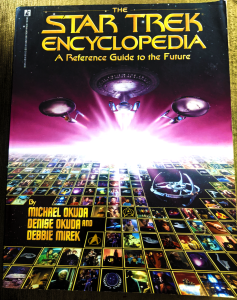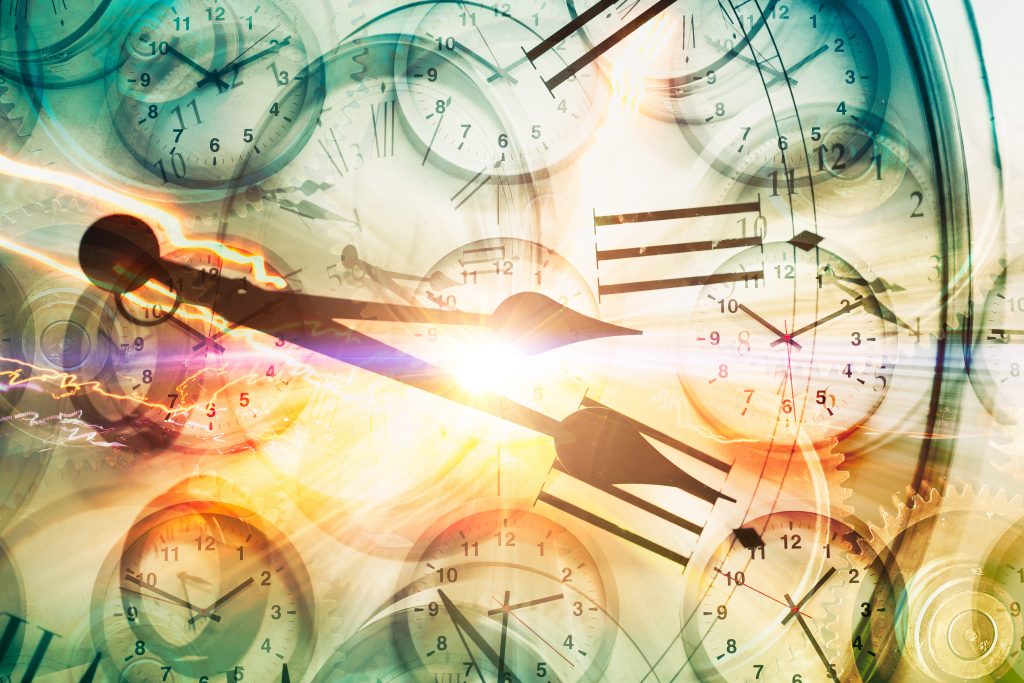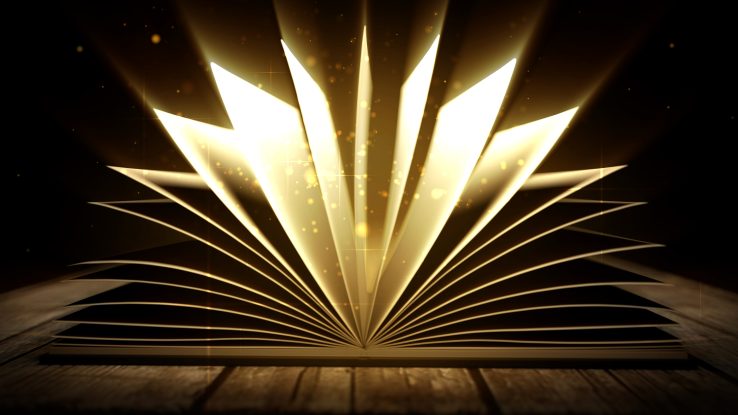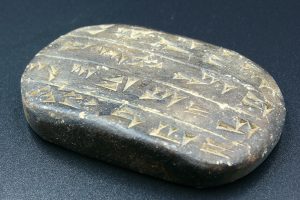“A book is a gift you can open again and again.” —Garrison Keillor
From clay tablets in ancient Sumeria to pictographs on papyrus scrolls in Egypt, to the first ever codex, to Guttenberg and the printing press, and finally to e-readers in the 21st century – the codex has evolved significantly throughout the ages.
With the help of the internet, we essentially have access to every book ever written – right at our fingertips. That does not mean that the traditional book is going the way of the dinosaur, though.
While I will admit that virtually every book I currently own is in either audio or digital format, there is one book that I own that is in the traditional codex format of paper pages bound together. I purchased it as a souvenir from the very first Comicon I ever attended. Something that I couldn’t have done with a digital file.

One thing hard copies can do that digital versions cannot is that they can serve as souvenirs. Had I purchased an e-format or audio version of this book, it would have little to no sentimental value.
Sure, it would remind me of my first Comicon anytime I saw it while scrolling through my digital library, but it wouldn’t be the same.
The memories that would surface from seeing the title of the book inside a digital library pale in comparison to the actual image of the physical book.

Research has shown that human beings process images 60,000 faster than text. In addition, text is processed and stored in our short-term memories, whereas images tend to be stored in our long-term memories. This means that I can glance at my book on the bookcase and recall the memories I’ve associated with it for years to come.
Whereas the memories that could be recalled by simply looking at the book’s title on an e-reader would be minimal and short-lived. This isn’t the only thing that a traditional codex format has on an e-file, either.
If I decided to try and add to this book’s value or purpose, a digital format would limit how I could do that. I couldn’t display an audiobook to accentuate my home decor. I couldn’t bring an e-book to my next Comicon to have it signed by my favorite celebrities. An e-book won’t grow in value with time the way a well-preserved hardcopy will, either.
Digital formats indeed have features that physical copies could never possess – such as search bars and the ability to be saved to the cloud – but they couldn’t hope to replicate the sentimental applications that a traditional codex format can.
The information in my book would, without a doubt, be easier to access in a digital format – but that is not what I love about it. To me, it is more than just some information printed on paper and bound together. For me, this book is a time machine. Both to the future – by reading the information contained within its pages – and to the past – where I can revisit one of the best experiences of my entire life.



